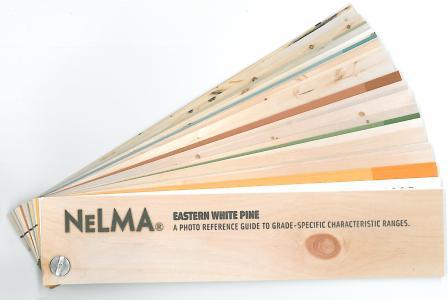In its first visit since 2011, eleven members and guests of the White Pine Subcommittee met at the University of Maine’s School Forest on June 27 to observe first-hand the progress of the NELMA-sponsored Pine Weevil Resistance research project. Planted in 2008, many of the original 960 Eastern White Pine seedlings were still showing signs of weevil attack resistance following at least one introduction of the weevil directly to the seedlings. The site now contains 321 total living trees of which 282 of various clones show no signs of attack.
of the weevil directly to the seedlings. The site now contains 321 total living trees of which 282 of various clones show no signs of attack.
Professor Robert Seymour, Professor of Silviculture at the UMaine School of Forest Resources, and Keith Kanoti, Forest Manager, led the group through the plantation, providing details and answering questions for the group regarding the project. Additional exposure to the weevil is planned before any final analysis and resistance determination can be determined according to Professor Seymour. He stated that the goals of this long-term project, should it prove to be successful, is to provide the forest industry and landowners with improved seedlings to bolster the quality of Eastern White Pine for sawlog material. Read the full tour report here.
 While at the School Forest, the group also took a brief tour of the University’s Low-Density White Pine Crop-Tree Thinning activity, followed by an discussion on the results of the Caliciopsis Canker Lumber Degrade Study, recently completed by Ph.D, Forest Pathology candidate, Kara Costanza. The Canker has an obvious affect on lumber quality as shown in Kara’s research (Read here).
While at the School Forest, the group also took a brief tour of the University’s Low-Density White Pine Crop-Tree Thinning activity, followed by an discussion on the results of the Caliciopsis Canker Lumber Degrade Study, recently completed by Ph.D, Forest Pathology candidate, Kara Costanza. The Canker has an obvious affect on lumber quality as shown in Kara’s research (Read here).


